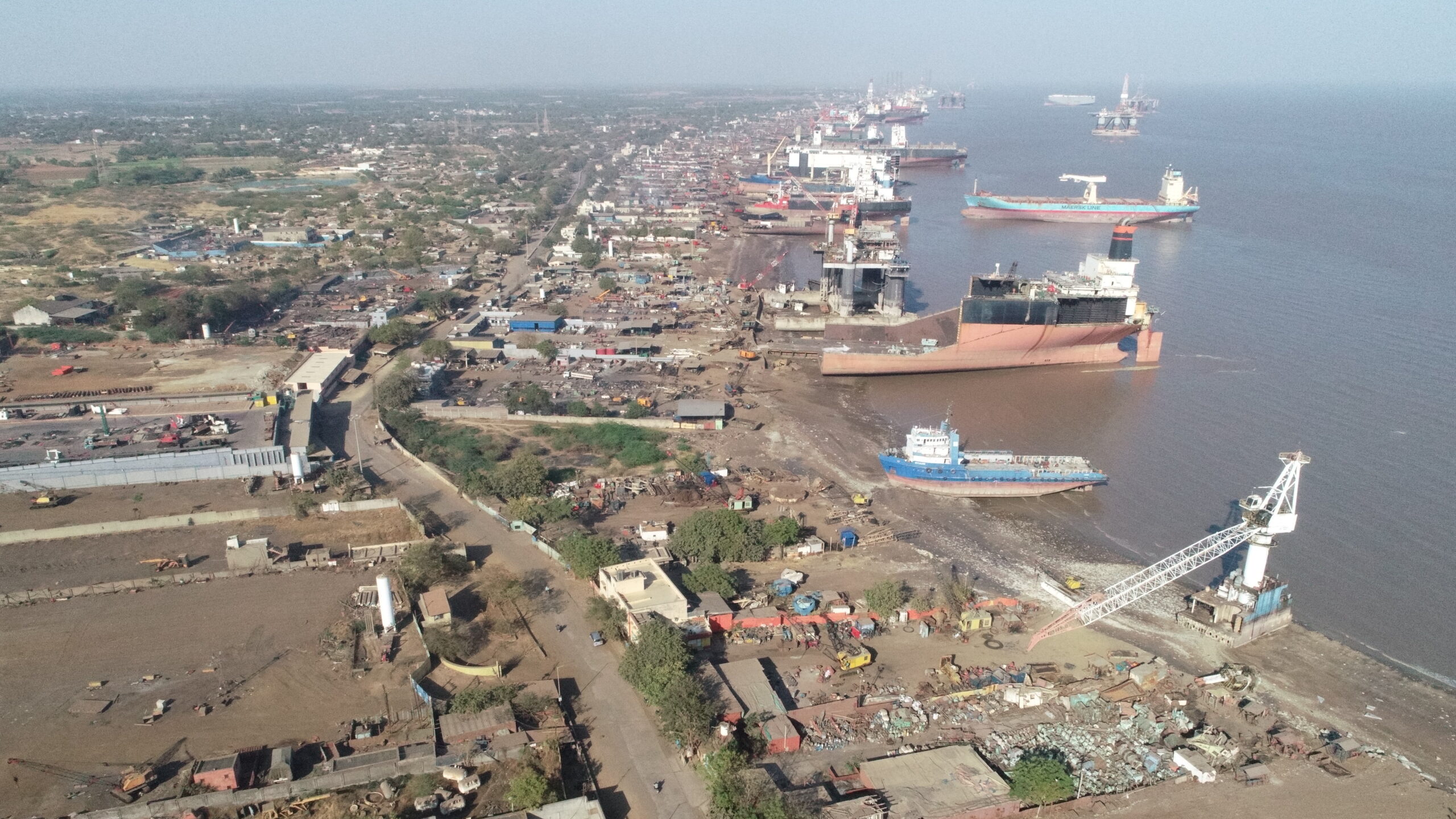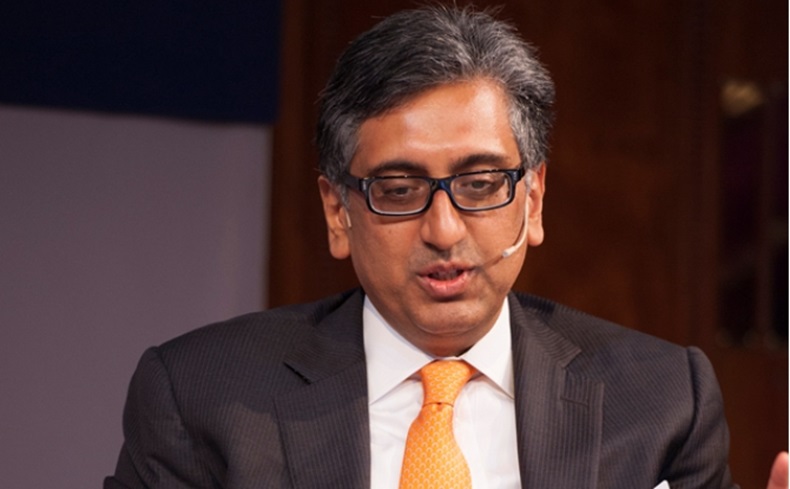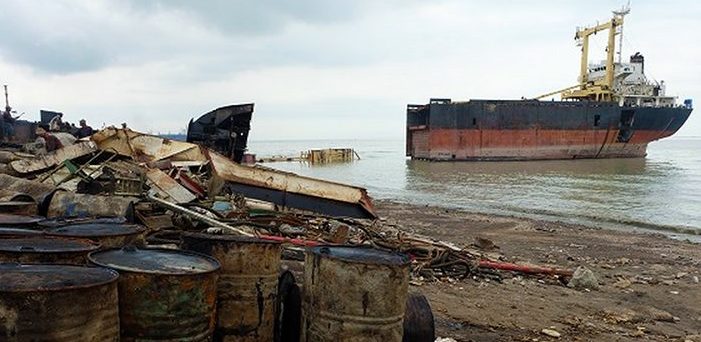Rs 400 Crore Ferry Project Between Ghogha and Dahej Abandoned: Government Begins Investigation
In a major setback to Gujarat’s ambitious Ro-Pax ferry project between Bhavnagar’s Ghogha and Bharuch’s Dahej, the service has been completely shut down after being operational for only a few months. What began as a dream project promising faster and more efficient transportation across the Gulf of Khambhat has now turned into a tale of mismanagement, technical failure, and wasted public money.

Despite over Rs 400 crore of taxpayer money spent on this project, the ferry service has come to a halt due to heavy silt accumulation near the jetty at Dahej, making it impossible for ships to dock. Now, the government has swung into action and launched an investigation into the reasons behind this massive failure, including allegations of irregularities and negligence by government agencies.
A Project with Great Expectations
The Ghogha-Dahej Ro-Pax ferry was expected to drastically reduce travel time between Saurashtra and South Gujarat. Earlier, people had to travel more than 300 km by road to cross the Gulf of Khambhat. The ferry aimed to cut this distance to just 31 km by sea, making the journey faster, cheaper, and eco-friendly.
In 2017, Prime Minister Narendra Modi inaugurated the service with much fanfare. The project was originally developed by the Gujarat Maritime Board (GMB), the state body responsible for managing Gujarat’s ports.
However, soon after its launch, technical and environmental challenges began to surface.
Trouble from the Start
One of the major issues was siltation near the Dahej jetty. The Gulf of Khambhat is known for its high tidal range and fast-flowing waters, which lead to heavy silt deposition. Despite this known problem, the ferry route was launched without adequate long-term solutions for managing the silt.
Rs 150 crore was spent on building the Ro-Ro terminal at Dahej, and more than Rs 200 crore was spent on capital and maintenance dredging, which involved removing silt to maintain water depth for ferry operations.
Even after these huge expenses, the project struggled. Ferries could not reach the jetty due to the continuous accumulation of silt. As a result, services were halted, and the terminal remained unused.
Change of Hands: GMB to DPA
Due to increasing criticism and operational failures, the state and central governments decided to transfer the project from GMB to the centrally-run Deendayal Port Authority (DPA). This transfer was formalized through a Right of Use (RoU) Agreement signed on November 3, 2020.
This agreement not only transferred the Ghogha and Dahej terminals but also included the land at Hazira, where DPA later successfully built a permanent Ro-Ro terminal. Currently, the Ghogha-Hazira ferry service is running well from this terminal.
However, the same success could not be repeated at Dahej.
DPA Now Wants to Hand It Back
Now, even DPA seems to have given up on the project. According to a senior DPA official, the authority has been trying to hand back the Dahej terminal to GMB, but GMB has shown little interest.
“We have spoken to GMB to take back the terminal, but it feels like a one-way communication. There is a serious siltation problem, and we even consulted experts from IIT Chennai, but no practical solution has been found. The terminal is ready but lying unused. We are now taking legal advice on what can be done,” the DPA official said.
Payment Without Third-Party Inspection?
The controversy deepened when it was revealed that payments for the dredging work were made without a third-party inspection, which was a necessary condition. According to Box-1 in the investigation, this payment was made despite negative inspection reports, raising serious questions about transparency and accountability.
The investigation is now focusing on how such large payments – more than Rs 200 crore – were cleared without proper checks, and why work continued despite warnings of siltation problems.
GMB’s Role Under Scrutiny
The Gujarat Maritime Board, which first managed the project, is now facing criticism for poor planning and execution. According to Box-2 of the investigation findings, GMB is being blamed for choosing the wrong site at Dahej in the first place, even though experts had warned about potential siltation problems in the area.
Despite this, no action has been taken against any officials at GMB. The agency has also not initiated any internal inquiry into how and why the project failed.
Public Money Wasted, Accountability Needed
The closure of the ferry service and the wastage of over Rs 400 crore of public money has sparked anger and concern. The government has now launched a full-scale investigation into the matter.
Authorities are looking into all aspects of the project – from planning and site selection to construction, dredging, operations, and the eventual handover from GMB to DPA. The goal is to identify who was responsible for the failure and whether any corruption or negligence occurred.
Experts say the case is a classic example of poor coordination between state and central agencies, lack of long-term planning, and failure to listen to environmental warnings.
What’s Next?
As of now, the Dahej ferry terminal stands abandoned. While the Ghogha-Hazira service continues to operate, the dream of linking Ghogha and Dahej through the sea lies shattered.
The future of the Dahej terminal is uncertain. DPA wants to hand it back to GMB, but without a solution to the silt problem, GMB is unlikely to take it. Meanwhile, legal complexities are growing as both sides consider their next move.
Lessons to Learn
This failed project offers some important lessons for future infrastructure planning:
-
Site selection based on a thorough environmental assessment is crucial.
-
Expert recommendations should be taken seriously, especially in complex environments like the Gulf of Khambhat.
-
Regular monitoring, third-party inspections, and transparent payment systems must be strictly followed.
-
Clear accountability must be established when public money is involved.
What started as a flagship project with the Prime Minister’s backing has now become a symbol of wasted potential. As the investigation progresses, the people of Gujarat – and the country – deserve answers. Who allowed Rs 400 crore to be spent on a project that was doomed from the beginning? Why were expert warnings ignored? And most importantly, what will be done to ensure this never happens again?
The government owes it to the public to bring transparency, accountability, and justice in the Ghogha-Dahej ferry project case.
Author: shipping inbox
shipping and maritime related web portal








